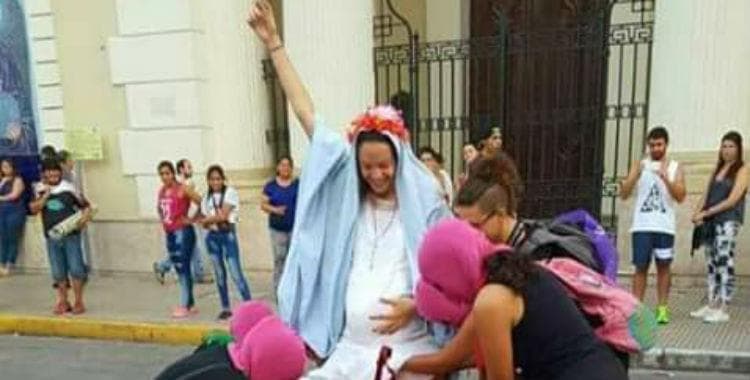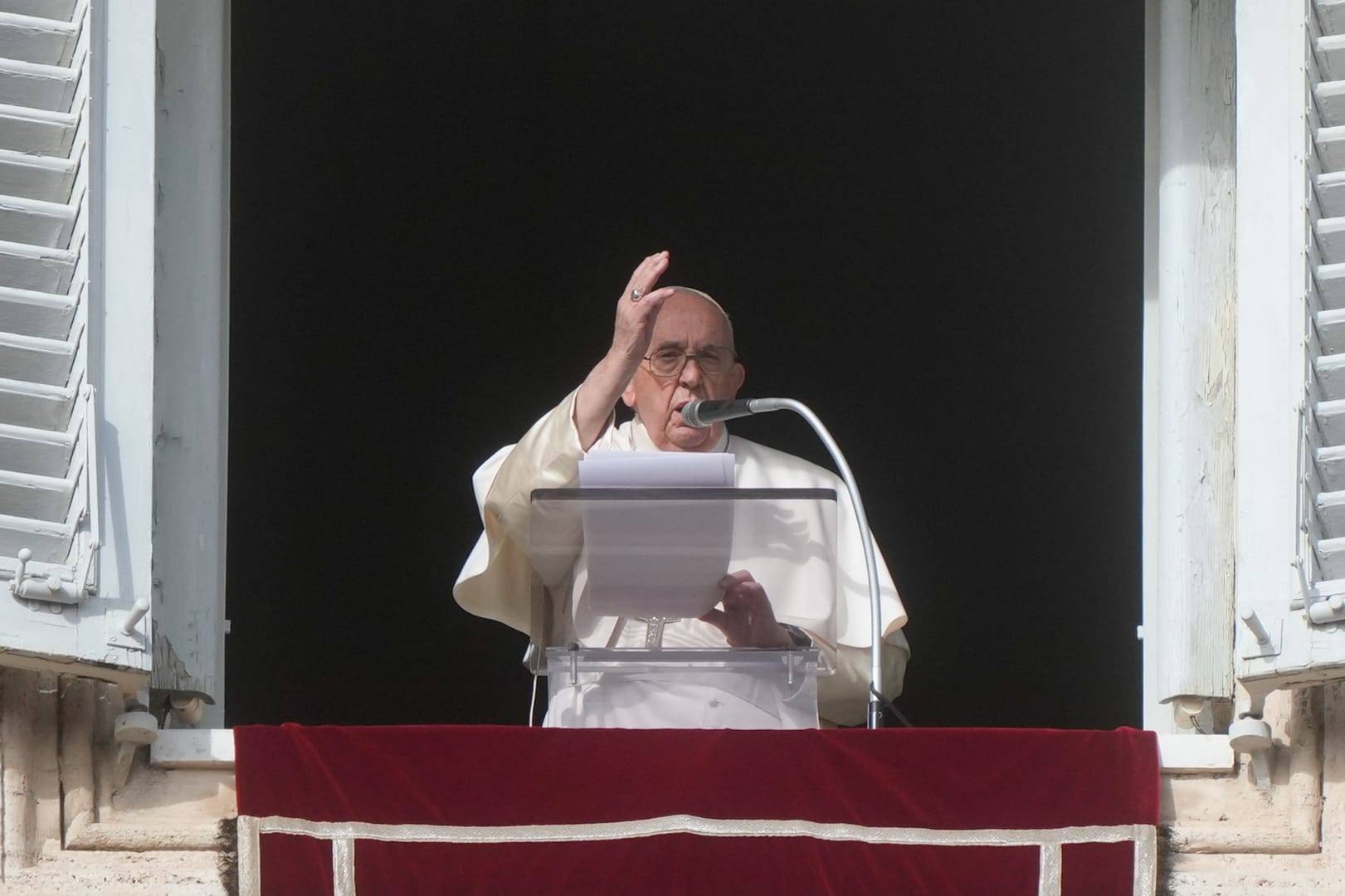In Pope Francis’s home country of Argentina, pro-women rallies of any sort have become synonymous for attacks on churches and on the Catholic faith.
This week was no different, when, on March 8, as the world marked the United Nations-sponsored International Women’s Day, a woman dressed like the Virgin Mary pretended to have an abortion in front of a cathedral.
The events took place in Tucuman, a northern province in Argentina, where thousands rallied in favor of equal pay for women and against femicide. In Argentina during 2016, a woman was murdered by her male partner every 30 hours, so it’s not as if there weren’t reasons for the protest.
Yet as has happened in many other countries, a rally that was once about equality between women and men has also become for most of those participating a rally in favor of abortion, a practice that is forbidden in Argentina unless the life of the mother is threatened by pregnancy.
Hence, in what is being described as “an artistic representation” by some, a group of women pretended to do an abortion on a woman dressed like a very pregnant Virgin Mary in front of a Catholic cathedral in a clearly provocative gesture.
The gruesome images, which include what looks like blood and baby parts coming out from under the woman’s dress, were shared thousands of times on Facebook.
An organization called “Socorro Rosa Tucuman” organized the fake abortion. On their Facebook page, they wrote: “In Tucuman, the Virgin aborted in the cathedral the patriarchate, the mandatory heterosexuality and the mandates of this reprising society and demanded all misogynist of this medieval province to remove her image from every maternity ward, to stop forbidding abortions in her name, that he, throwing this abortion in the face of monsignor Zecca, this rotten fetus, conceived only for the raping system that mandates us to forced maternity.”
An image of the event appears below, but viewer’s discretion is advised.
The local archbishop, Alfredo Horacio Zecca expressed his condemnation of the abortion parody.
The events, he said, “deeply aggravate the person and image of the Most Holy Virgin Mary, Mother of God, and also the faith of the Catholics of Tucuman.”
In a statement released on March 9, Zecca said that the performance “deeply contradicts a celebration where the intention was to dignify women, so many times humiliated, beaten and murdered.”
“The aggravating facts are not only aggressive for all believers, but also, for the dignity of women,” he said.
Although the National Institute Against Discrimination, Xenophobia and Racism, has refrained from commenting on the assault on Catholic sensibilities, other organizations have come forth.
For instance, the Argentine Union of Private Teachers condemned “violence and aggression as methods of asserting rights or in defense of conquests.”
To this end, they rejected the aggressive manifestations that took place during the rally, “hurting the feelings of the whole Catholic people, offending their mother, the Virgin Mary.”
The group has long been active participants in the rallies in defense of women’s rights, but after what happened, they said they won’t participate in the future so as to not show support to violent and “gratuitous acts” against any social or religious group.
Through WhatsApp, Facebook and Twitter Catholics in Argentina are calling for a rosary to be prayed on Saturday, March 11, in every church, school and home as reparation for what many are describing as blasphemy.
But the events in Tucuman weren’t the only assaults on Catholic targets.
In the southern city of Bahia Blanca, the Catholic cathedral was painted with pro-abortion and anti-church remarks. In Buenos Aires, a group of women who had participated in the Women’s March, tried to bring down the protective fencing the police had set up in front of the cathedral, former home of Pope Francis.
Bare-chested protesters lit up a fire in front of the building, while chanting “The only church that illuminates is one that is burning,” “take your rosaries out of our ovaries,” and several other similar songs. A few dozen women were arrested by the police.
A young man who stood in front of the group, holding a Vatican flag, defending the church, was violently attacked.
This is not the first time that Argentine women have attacked a church in defense of what they perceive to be women’s rights. Last October, women with naked torsos demanding legal and free abortion and the legal recognition of prostitution as a legitimate trade assaulted a Catholic cathedral in Rosario, hurling stones and bottles and prompting police to fire rubber bullets into the crowd.
This event came at the closing of a yearly workshop known as “National Women’s Congress,” which every year ends in the same way.
RELATED: Feminist protesters assault Catholic cathedral in Argentina
Viewers discretion is advised:

















